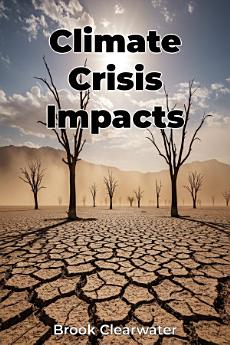Climate Crisis Impacts
About this ebook
Moving beyond a simple overview, the book highlights the tangible and devastating impacts already unfolding globally, emphasizing the destabilization of weather systems and the accelerating degradation of ecosystems.
The central argument underscores that a comprehensive understanding of these direct consequences is paramount for effective mitigation and adaptation strategies.
Beginning with fundamental climate science principles, the book progresses to analyze specific impacts, such as the intensification of extreme weather events like hurricanes, droughts, and floods.
It also examines ecological transformations, including biodiversity disruption and coral reef degradation, before addressing societal ramifications like displacement and resource conflicts.
This approach ensures readers grasp the urgency of the climate crisis and the need for global cooperation and sustainable practices.
A unique aspect of this work is its emphasis on localized impacts within a global context, highlighting the distinct vulnerabilities of different communities.
By adopting a fact-based and accessible writing style, Climate Crisis Impacts empowers readers to make informed decisions and advocate for effective policies, making it a valuable resource for students, policymakers, and concerned citizens alike interested in Earth Sciences Geography and the Environment.







